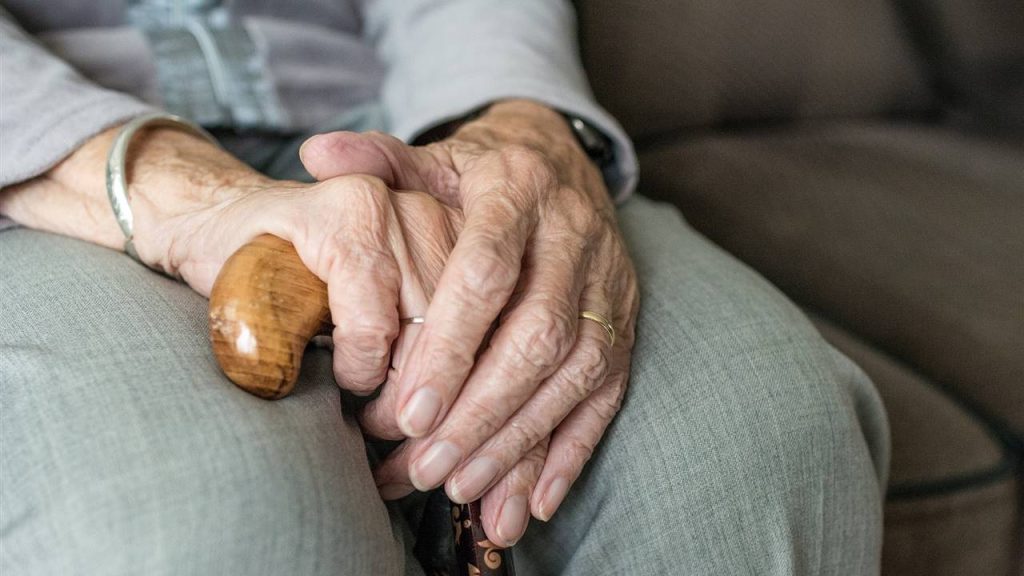Personal hygiene is a central part of the daily care of seniors in many families. However, this is often a difficult situation for people in need of care and their families. Feelings of shame, role conflicts, and lack of experience during personal hygiene can be very uncomfortable. Doubts often arise as to how much is necessary or how to do it.

Good personal hygiene isn’t just about preventing disease. It also contributes to physical and emotional well-being. When you can no longer take care of yourself, self-esteem can be severely affected. Caregivers should keep this in mind.
HOW SHOULD THE DAILY PERSONAL HYGIENE OF THE ELDERLY BE?
It’s important to take good care of yourself as you get older. Paying attention to your own body and taking care of yourself is good for you. Most seniors prefer self-care without help.
Individual body care includes bathing, washing, showering and hair care, oral, dental and nail care. Basic duties include dressing and undressing and changing bedding. Preventive measures against pressure ulcers are an important part of care.
SELF-CARE CHALLENGES IN OLDER PEOPLE
The need for caregiving can lead to an increasing need for help with personal hygiene. The family often takes on the responsibilities of caring for the people living in the home.
Both sides, the older person and their caregivers, are in an awkward position and it’s important to understand that. Those who need care often feel more uncomfortable than the caregiver.
It is usually the partner or the children themselves who help with care, dressing, and washing. It is not uncommon for negative feelings such as dependence, shame or pride to give rise to conflict.
To avoid conflict, it is helpful to put yourself in the other person’s shoes. As a caregiver, you may ask yourself:
- How would you like to be treated and cared for in this situation?
- What dare you do and what don’t?
- Where do I not feel comfortable?
- How can we improve the situation together?
- What is the other person like?
- Does the other person feel comfortable?
Be sure to use courteous and respectful language towards the people you care for, treat them with respect and dignity, even in uncomfortable situations. Also, if the person is silent at that moment or does not know where he is.
It is important that you strengthen your nervous system and that you take advantage of all the offers of rest you need, such as domestic help, short vacations or family support. You can talk to your GP and social services.
HOW TO PROPERLY WASH THE ELDERLY?
1. MAKE SURE YOU CREATE A GOOD ATMOSPHERE
Maintaining a friendly and pleasant atmosphere is important. Trust your feelings and intuition instead of rigid rules. Make sure the room or bathroom is at a comfortable temperature without drafts. Remember that older people feel colder.
2. INFORM WHAT YOU ARE GOING TO DO
Explain each step you are going to take to the other person. Tell him what part of your body you’re about to lather. Uncover only the part of the body to be cleaned. This way the other person will feel comfortable and will not be cold.
3. SPEAK
Talking about general topics during self-care and avoiding any discussion is best. Do not deal with controversial topics that are known to upset the other person.
4. THE ORDER IN WHICH TO WASH
Always start with the face, neck and ears and then continue down the body.
5. DESIRED PARTICIPATION
Encourage the older person to get involved in hygiene, if they can, this increases their self-esteem. For dental care, you can put the toothpaste on the brush and encourage her to brush her teeth herself. Do not follow every action but stay close, this way the family member feels less controlled.
6. CLEAN THOROUGHLY
After washing the body, remove any soap residue with a damp cloth. Dry skin folds and spaces between fingers and toes thoroughly. Don’t forget to ask if the person who needs care feels like they’re still wet somewhere to review it.
7. STAY ALERT
Take a good look at the skin. Irritated, moist, or damaged skin is prone to pressure ulcers. Redness and pressure points may be indications of the beginning of an ulcer. If you see anything strange, tell your GP.
8. SET A SCHEDULE
Take your time for personal hygiene. But also consider whether it is necessary to wash everything, every day. Frequent washing destroys the acid mantle of the skin.
The skin of older people is drier and therefore more susceptible. In the case of incontinence, absorbent products can offer reliable skin protection.
9. CONSIDER THE OTHER PERSON’S TASTES AS WELL AS YOUR OWN
Is it important for your father to wash his hair every day? You must respect their wish. Have you personally had trouble touching wet hair in the past? In that case you can wear gloves. You have to find a balance between the needs of the older person and yours.






